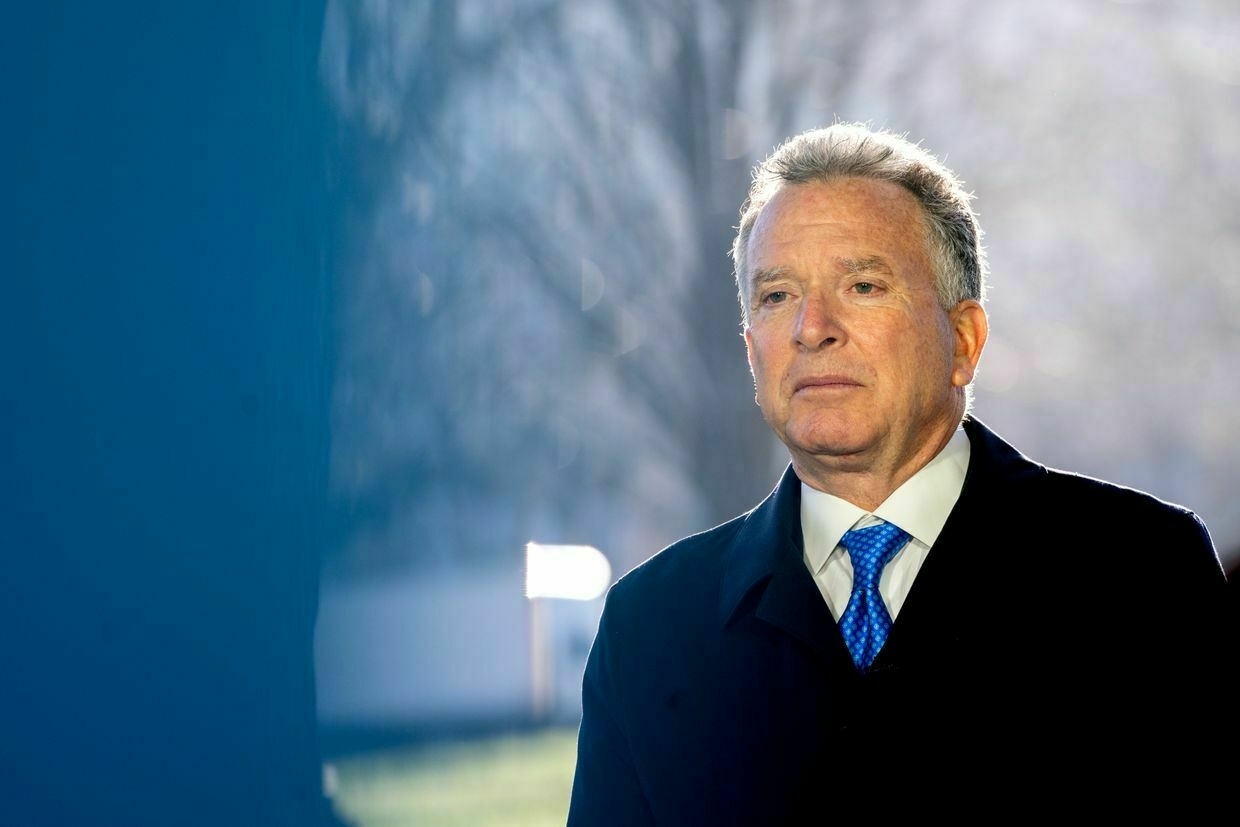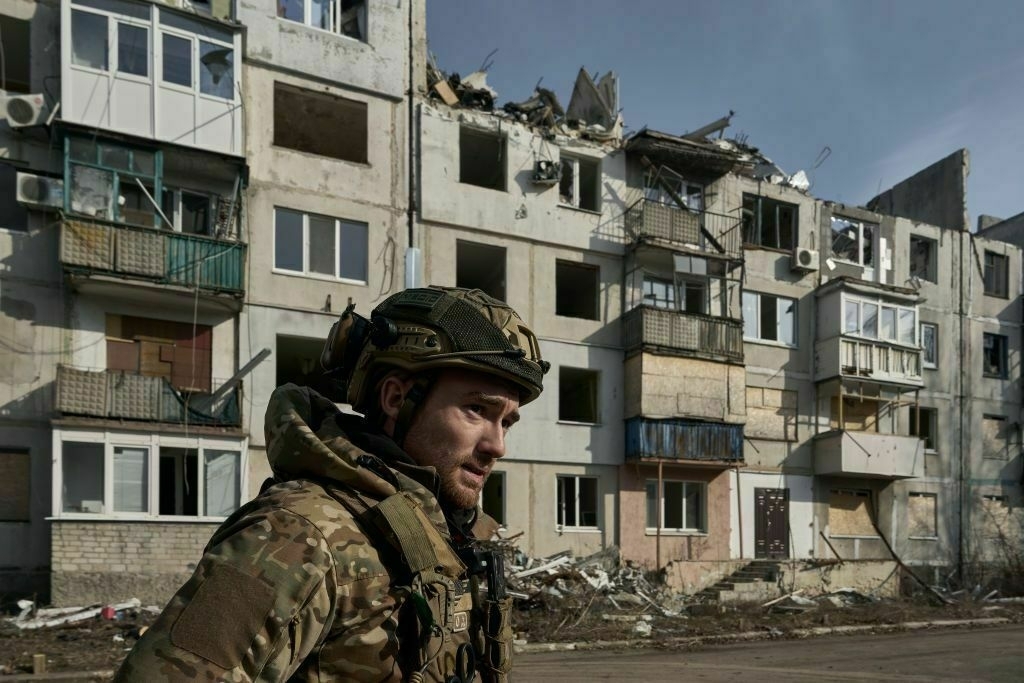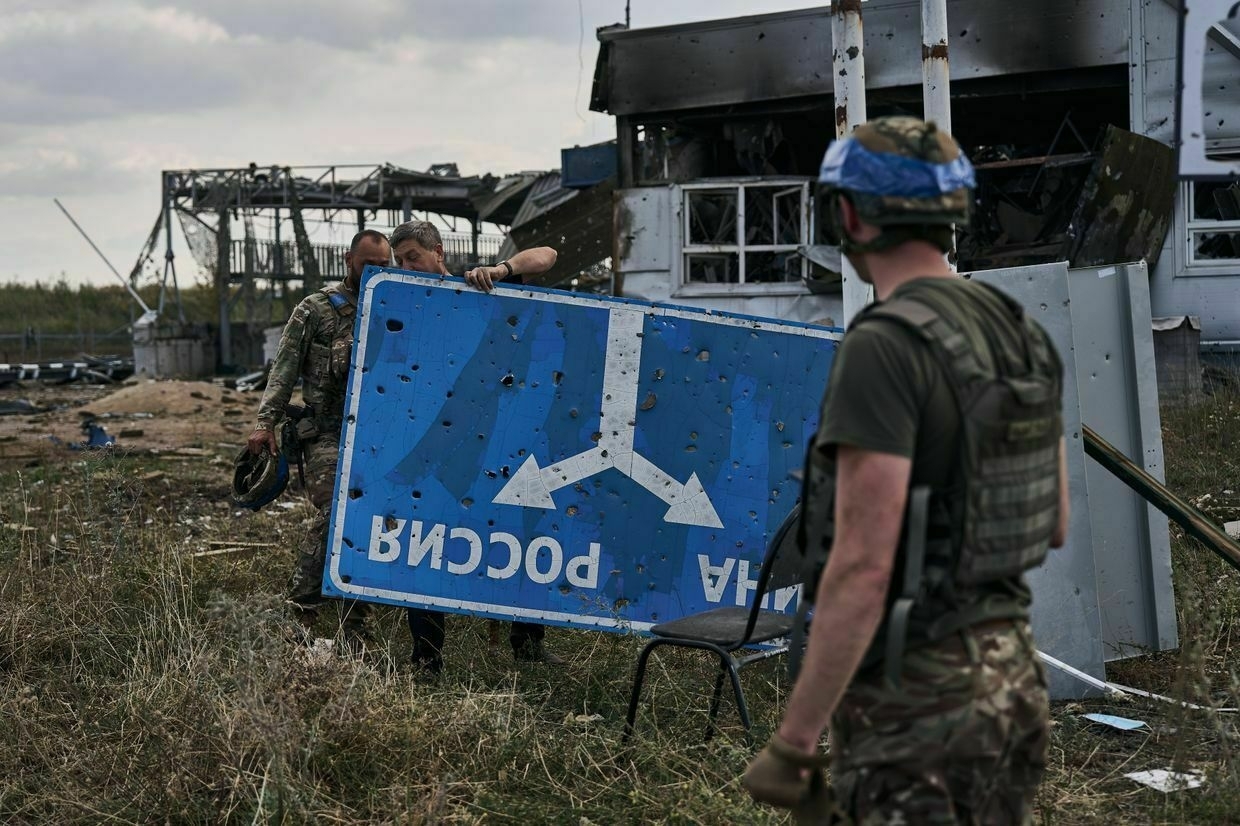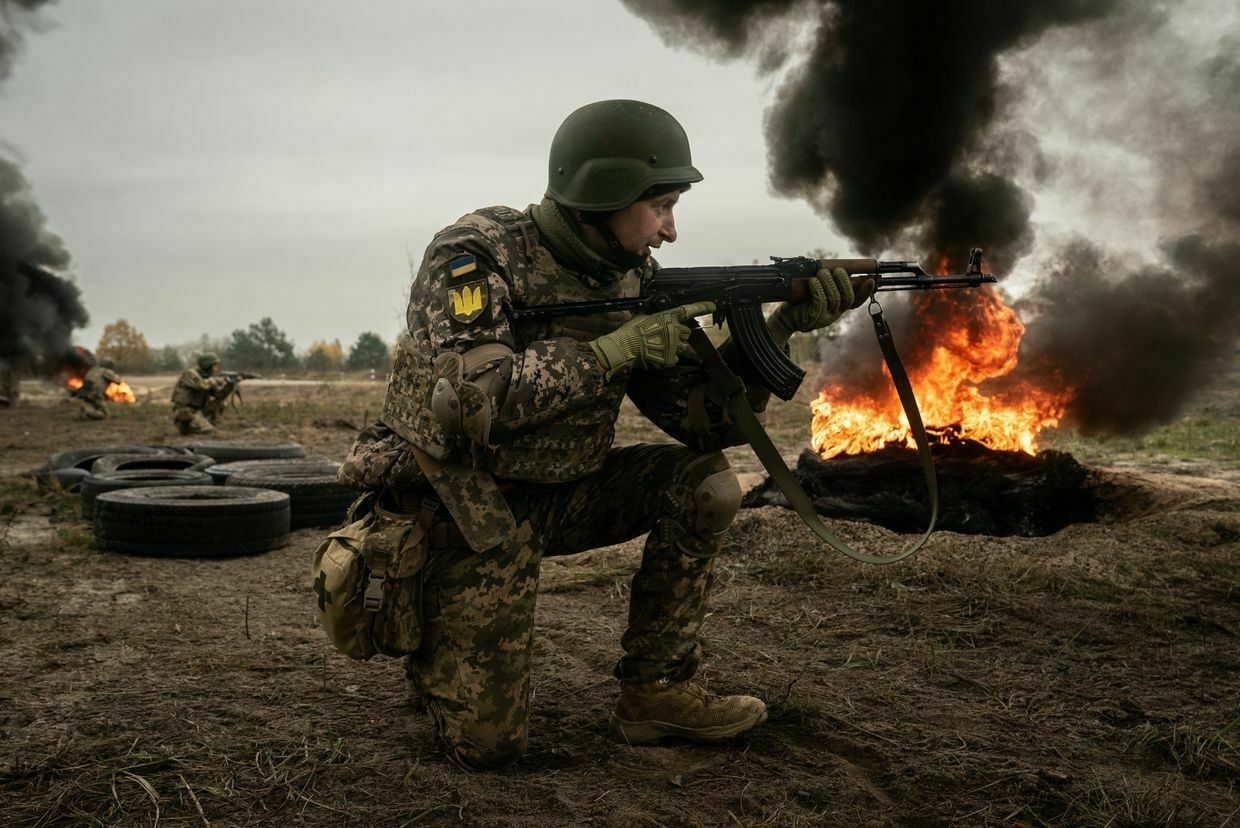
Key developments on April 15:
- Ukrainian forces target Russian missile brigade behind deadly Sumy attack
- Witkoff says ‘5 territories’ key to proposed Russia-Ukraine deal after meeting Putin
- North Korean artillery now dominates Russia’s ammunition supply in war against Ukraine, investigation says
- Azov, Khartiia commanders to lead 2 new National Guard corps
- Russia’s Yamalo-Nenets region becomes first to reduce military enlistment payments
Ukrainian forces struck the base of Russia’s 448th Missile Brigade, which had carried out a deadly attack on the northeastern city of Sumy on April 13, Ukraine’s General Staff reported on April 15.
The Russian missile strike, launched on Palm Sunday, killed 35 people and injured 119. It was one of the deadliest attacks on Sumy since the start of the full-scale war.
According to the General Staff, the strike on the Russian base in Kursk Oblast was carried out by Ukraine’s Unmanned Systems Forces, Special Operations Forces, the Security Service of Ukraine, and other military units.
The attack reportedly triggered an ammunition explosion at the site.
The Kyiv Independent could not independently verify these claims.
“Every Russian military unit, subdivision, and their servicemen who shell peaceful cities and civilians in Ukraine will be identified and will definitely receive retribution,” the General Staff’s statement read.
The full consequences of the strike are still being assessed, officials said.
Witkoff says '5 territories' key to proposed Russia-Ukraine deal after meeting Putin
U.S. Special Envoy Steve Witkoff said on April 14 that his recent talks with Russian President Vladimir Putin were "compelling" and centered around a possible peace deal based on the status of "five territories."
Witkoff, who met with Putin in St. Petersburg on April 11, described the meeting as productive, claiming the Russian president expressed a desire for "a permanent peace," though it "took a while for us to get to" that point.
"This peace deal is about these so-called five territories," Witkoff said in comments for Fox News. "But there's so much more to it. I think we might be on the verge of something that would be very important for the world at large."
Though Witkoff did not name the territories directly, he appeared to refer to Crimea, illegally annexed by Russia in 2014, and the partially occupied Donetsk, Luhansk, Zaporizhzhia, and Kherson oblasts. Moscow declared the annexation of the latter four regions in 2022.
The envoy also hinted at a broader strategic ambition tied to business incentives. "I see a possibility of reshaping the Russian-United States relationship through some very compelling commercial opportunities," Witkoff said. "That gives real stability to the region too."
Some U.S. officials have raised alarms over the direction of the Trump administration's diplomacy. The Wall Street Journal reported that Secretary of State Marco Rubio and Special Envoy for Ukraine Keith Kellogg are urging President Donald Trump to resist territorial concessions to Moscow.
Despite the appeals, Trump is siding with Witkoff, who argues that Putin is interested in reaching a peace deal, the outlet wrote.
According to Reuters, Witkoff told Trump that recognizing Russian control over the four partially occupied regions would be the quickest way to secure a ceasefire. This approach mirrors Kremlin demands and has sparked concern among Kyiv's allies.
Despite ceasefire efforts, Russia continues to reject the full 30-day ceasefire proposal backed by the United States and supported by Ukraine. A partial truce covering energy infrastructure has repeatedly been violated by Russian forces.
Witkoff, who has visited Russia several times this year and serves as Trump's top negotiator, has drawn criticism for adopting Kremlin talking points, particularly regarding the nature of Russia's occupation and the prospects of trading territory for peace.
Since returning to office in January, the Trump administration has resumed direct talks with the Kremlin and signaled a diminished commitment to Ukraine's defense, even as Russia intensifies attacks on civilian areas.
 The Kyiv IndependentFrancis Farrell
The Kyiv IndependentFrancis Farrell
North Korean artillery now dominates Russia's ammunition supply in war against Ukraine, investigation says
The majority of artillery shells used by Russian forces in Ukraine in 2024 were manufactured in North Korea, according to a joint investigation by Reuters and the Open Source Center (OPS), published on April 15.
North Korea has become a key military ally of Russia, supplying artillery shells, missiles, and reportedly even soldiers in exchange for oil products and advanced rocket technology.
Internal technical reports from Russia’s Defense Ministry, obtained by investigators, indicate that in some Russian military units, between 75% and 100% of artillery shells are North Korean-made. Overall, North Korea is providing roughly half of all artillery shells used by Russian troops, according to Ukraine’s military intelligence agency (HUR), as cited by Reuters.
Arms shipments from North Korea to Russia began no later than September 2023, following a July visit to Pyongyang by then–Russian Defense Minister Sergei Shoigu, the investigation found.
Between September 2023 and March 17, 2025, Russian cargo ships Angara, Maria, Maya-1, and Lady R transported military cargo 64 times from the North Korean port of Rajin to the Russian ports of Danube and Vostochny.
According to satellite images, the ships carried at least 15,809 containers in total. Cargoes from North Korea also traveled by the Friendship Bridge railroad across the Tumanna River in Primorye.
Deliveries peaked in January 2024, with seven batches per month, and cargo ships are currently transporting about three batches of shells per month, according to the investigation. The containers could carry between four and six million artillery shells alone.
The shells were transported by rail to warehouses near the Russian-Ukrainian border, mainly to Tikhoretsk in Russia's Krasnodar Krai.
Earlier, Russian President Vladimir Putin described North Korea as a "partner" and noted that a treaty on military cooperation between Moscow and Pyongyang, signed last year, had come into force.
Putin also suggested on March 27 that countries "friendly" to Russia, including North Korea, could take part in the peace process and negotiations to end Moscow's full-scale invasion of Ukraine.
 The Kyiv IndependentAsami Terajima
The Kyiv IndependentAsami Terajima
Azov, Khartiia commanders to lead 2 new National Guard corps
The National Guard has formed two new military corps as part of a broader reform of Ukraine's Defense Forces, National Guard Commander Oleksandr Pivnenko told Interfax-Ukraine in comments published on April 15.
Ukraine announced earlier this year that it would transition its military to the corps system to improve its efficiency and organization on the battlefield.
One of the new formations, the 1st Azov Corps, will be led by Colonel Denys Prokopenko, the commander of the 12th Special Forces Azov Brigade.
The Azov Brigade, as well as the 1st Presidential Burevii Brigade, the 14th Chervona Kalina Brigade, the 15th Kara-Dah Brigade, and the 20th Liubart Brigade, will make up the new corps.
Colonel Ihor Obolensky, commander of the 13th National Guard Khartiia Brigade, will lead the second corps, Pivnenko said.
The National Guard commander said the new corps system will improve communication and make the military more effective, considering experiences with the full-scale war.
The corps commanders should be familiar with the situation on the ground and understand the specifics of the units, Pivnenko said, naming the lack of coordination as the main obstacle facing Ukrainian forces.
The Ukrainian military currently operates under a brigade-level system, with more than 100 brigades subordinate to operational-tactical groups (OTU), which are subject to operational-strategic command (OSUV) and operational commands (OK).
Experts told the Kyiv Independent in February that the old structure created an unwieldy management system, and commanders of OTUs and OSUVs—effectively temporary bodies—were not familiar with their units.
Poor battlefield coordination has often been named as one of the key challenges plaguing the Ukrainian military as it continues to face Russia's all-out war.
 The Kyiv IndependentAsami Terajima
The Kyiv IndependentAsami Terajima
Russia's Yamalo-Nenets region becomes first to reduce military enlistment payments
The Yamalo-Nenets Autonomous Okrug has become the first Russian region to reduce enlistment payments for soldiers fighting in Ukraine, the Moscow Times reported on April 15, citing local officials.
Throughout the three years of Russia's full-scale invasion, regional authorities in Russia have significantly increased recruitment bonuses to encourage new troops to join the military amid heavy losses on the battlefield in Ukraine.
In Yamalo-Nenets, payments have now reverted to earlier levels. Instead of the previously offered 3.1 million rubles (about $37,700), new recruits will receive 1.9 million rubles (roughly $23,100). The higher payment had been in effect from Jan. 20 through April 15.
The highest bonus in Russia is still offered in Samara Oblast, where officers and those renewing contracts with the Russian Defense Ministry can receive 3.6 million rubles ($43,800).
At the start of 2025, six regions — including Chuvashia, Mari El, Bashkortostan, Smolensk and Kaluga oblasts, and Primorsky Krai — increased their payments. Kaluga Oblast saw the steepest jump, from 800,000 to 2 million rubles (about $9,700 to $24,300).
As of late March, the Russian government was spending about 2 billion rubles ($24.3 million) per day on enlistment bonuses, according to the Russian Finance Ministry. Roughly three-quarters of that — 1.5 billion rubles ($18.2 million) — is paid by regional governments, which are spending nearly 3% of their budgets on recruitment efforts. The remaining 500 million rubles ($6 million) comes from the federal government.
Earlier, President Vladimir Putin approved a reduction in compensation for soldiers wounded in the war against Ukraine.
In October, Russian forces suffered their deadliest month since the invasion began. British defense intelligence reported that Russian casualties in Ukraine totaled 41,980 killed or wounded that month, according to U.K. Defense Minister John Healey.
Despite record losses, Russian troops have been making increasingly rapid gains along the front line.
Note from the author:
Ukraine War Latest is put together by the Kyiv Independent news desk team, who keep you informed 24 hours a day, seven days a week. If you value our work and want to ensure we have the resources to continue, join the Kyiv Independent community.

